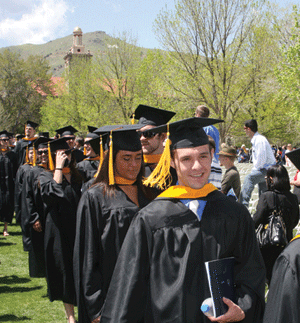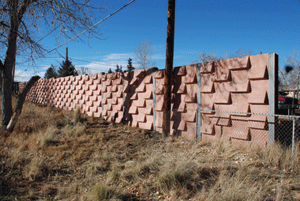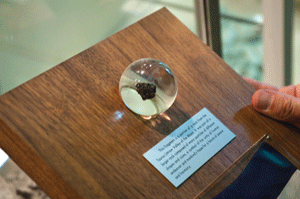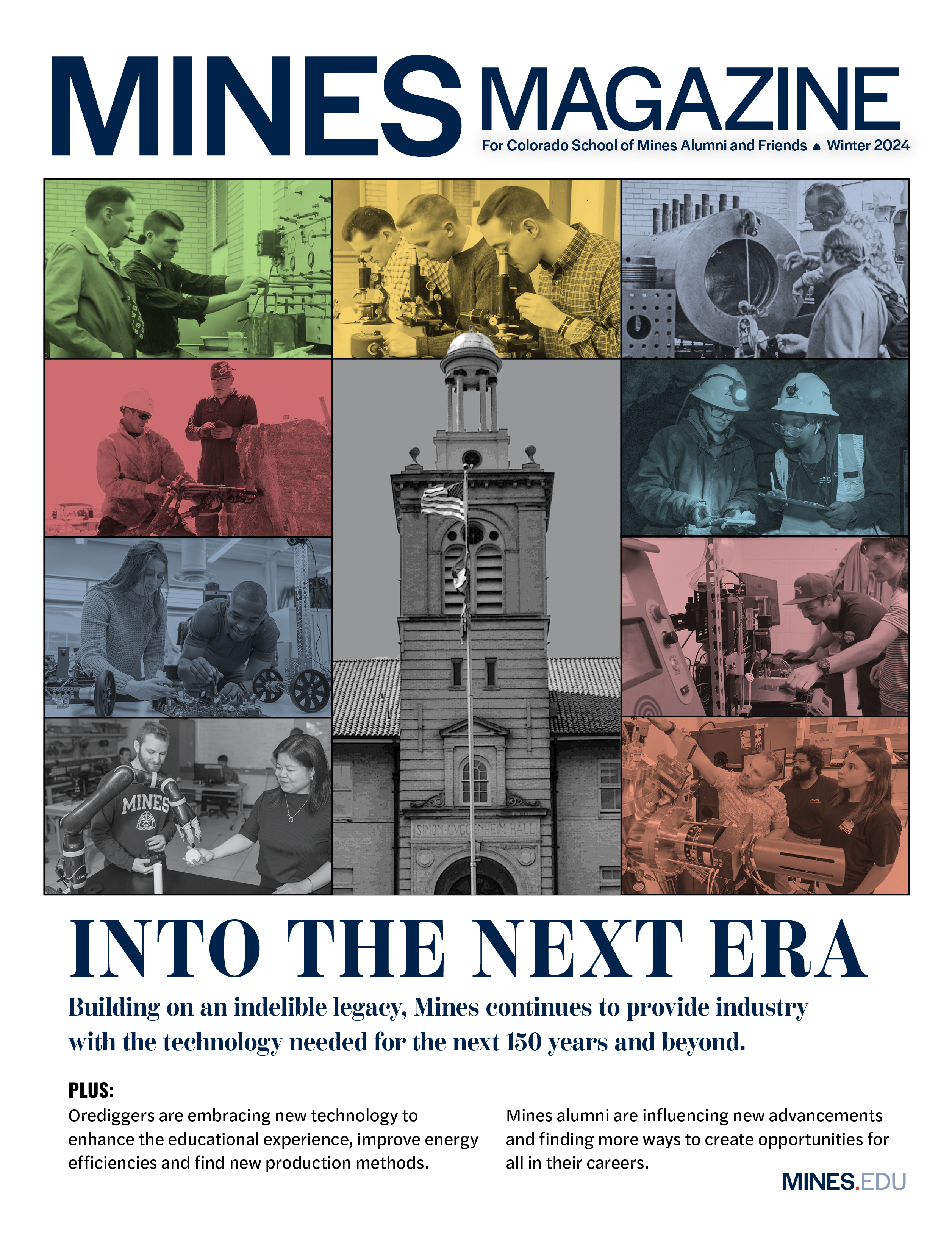Chemistry and Geochemistry professor Ryan Richards may not have expected his future to involve researching the interface of catalysis and nanoscale materials. But, he says, it turns out that interface is one of the most exciting areas of modern science, and it sits at the forefront of the quest for a sustainable future.
“Catalysts facilitate chemical transformations from starting materials to products. For example, your catalytic converter transforms nitrogen oxides and carbon monoxide into lesser environmental hazards,” says Richards, who directs the Materials Science Program at Mines. “The products of catalytic processes account for about 35 percent of the gross world product and fertilizers generated through the Haber catalytic process sustain nearly 33 percent of the global population.”
Since most of the elements considered to be good catalysts are rare, a sustainable future will require materials from earth-abundant elements that possess new catalytic properties. “Nanotechnology is an exciting area of modern science that is demonstrating new properties of materials as a function of changing their size, shape, and composition at the nanoscale,” says Richards. “Harnessing synthetic chemistry to control and direct matter in this size regime gives researchers a lot of parameters to explore.”
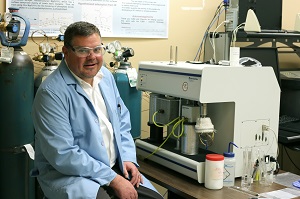 In addition to his research pursuits, Richards enjoys working with his students and brainstorming ways to unlock nature’s puzzles. To further round out his students’ education at Mines, he designed a new course aimed at developing tools to help them succeed as future scientists and engineers.
In addition to his research pursuits, Richards enjoys working with his students and brainstorming ways to unlock nature’s puzzles. To further round out his students’ education at Mines, he designed a new course aimed at developing tools to help them succeed as future scientists and engineers.
“This course basically teaches graduate students all of the skills they need to be successful but are never formally taught, such as pedagogy, writing papers and proposals, presenting research, and managing researchers,” he said.
Richards came to Mines in 2007 after serving as a founding faculty member at Jacobs University Bremen in Germany for five years. He and his wife, Sarah (an English teacher), served as college masters, living in a penthouse apartment in the dormitory and managing 280 students from 80 countries. “It was a great experience that was very influential for both of us,” Richards said, noting that their goal was to foster intercultural understandings among science and engineering students from around the globe.
But after his first daughter Sydney (now 10) was born, the Richards decided it was time to move back to the United States. With family already located in Colorado, the opportunity to teach and conduct research at Mines was a perfect fit. The Richards family, which also includes six-year-old Maya, enjoys the Colorado lifestyle and spend the winters skiing at Copper Mountain.
Richards, a fellow of the American Chemical Society, received his bachelor’s degrees in chemistry and forensic science from Michigan State University, his master’s degree from Central Michigan University, and his PhD from Kansas State University, which included six months as a visiting scientist at the Boreskov Institute of Catalysis in Novosibirsk, Russia. He also conducted post-doctoral study at the Max-Planck-Institut für Kohlenforschung in Mülheim an der Ruhr, Germany. He recently spent a semester on sabbatical at the University of Queensland in Brisbane, Australia, where he conducted research and “spread the gospel of Mines.”

